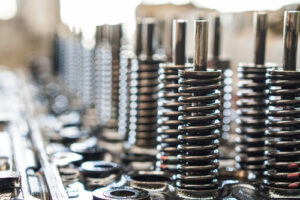 When manufacturing specialty springs, choosing the right alloy is essential. It must be strong enough to withstand the expected force and have a long lifespan. There are a number of different alloys to choose from, and each has its advantages and draw backs. By understanding each one, you can ensure that you are making the best decision for your project.
When manufacturing specialty springs, choosing the right alloy is essential. It must be strong enough to withstand the expected force and have a long lifespan. There are a number of different alloys to choose from, and each has its advantages and draw backs. By understanding each one, you can ensure that you are making the best decision for your project.
Stainless Steel
Stainless steel is a common choice for many types of springs because it offers several benefits, including its ability to resist corrosive environments. Moreover, it is biocompatible and hygienic, which makes it ideal for applications in the medical and food industries. 304 and 316 grade Stainless Steel are commonly used in surgical and medical equipment because of their corrosion resistance, making them an excellent choice for high temperature and moisture environments. Despite these advantages, however, it is still important to consider the right alloy for your specialty springs.
Nickel
One of the most common alloys used in spring manufacturing is nickel. It has an excellent strength-to-weight ratio and is a preferred choice for high-stress applications. It can also withstand extreme temperatures without losing its strength and durability. This makes it an ideal material for a wide range of industries. The most common spring alloys made with nickel are Inconel 600 and X750. Both of these nickel chromium iron alloys have good corrosion and oxidation resistance, and they are highly resistant to chloride stress cracking. They also have excellent resistance to high temperatures and are commonly used for sour gas wells. They are available in spring tempered or cold worked coils. They can be annealed or heat treated for additional hardness.
Titanium
Titanium is one of the most popular alloys in spring manufacturing. It offers a variety of benefits, including high strength, excellent elasticity and durability, resistance to corrosion and cavitation and is extremely biocompatible. But despite its impressive properties, titanium is still often considered to be relatively difficult to work with. Because of its low melting point and thermodynamic properties, it is prone to cracking and brittle fracture under stress. However, titanium still has a good strength-to-weight ratio, so it can be engineered to have fewer turns than a steel spring in a similar application.
Elgiloy
Elgiloy is a super alloy that is a great option for many types of springs. It’s a cobalt-chromium-nickel material with high strength, corrosion resistance and excellent fatigue life. Its properties make it ideal for many different applications, including gas turbine parts, rocket motors, aerospace, chemical processing, industrial heating and nuclear reactors. It’s also used for springs for medical devices, pharmaceutical delivery systems and petro-chemical processes. Another benefit of Elgiloy is that it’s resistant to corrosive environments and can resist extreme temperature. It is also non-magnetic and has superior ductility.
Metal Works Corporation
One of the best ways to ensure your custom steel springs are manufactured correctly is to work with an experienced company like ours here at Metal Works Corporation. We have extensive experience in manufacturing all kinds of springs and wire forms for a wide range of industries, from the aerospace industry to medical equipment. Contact our team of specialty springs experts to design the exact type of product you need today!

